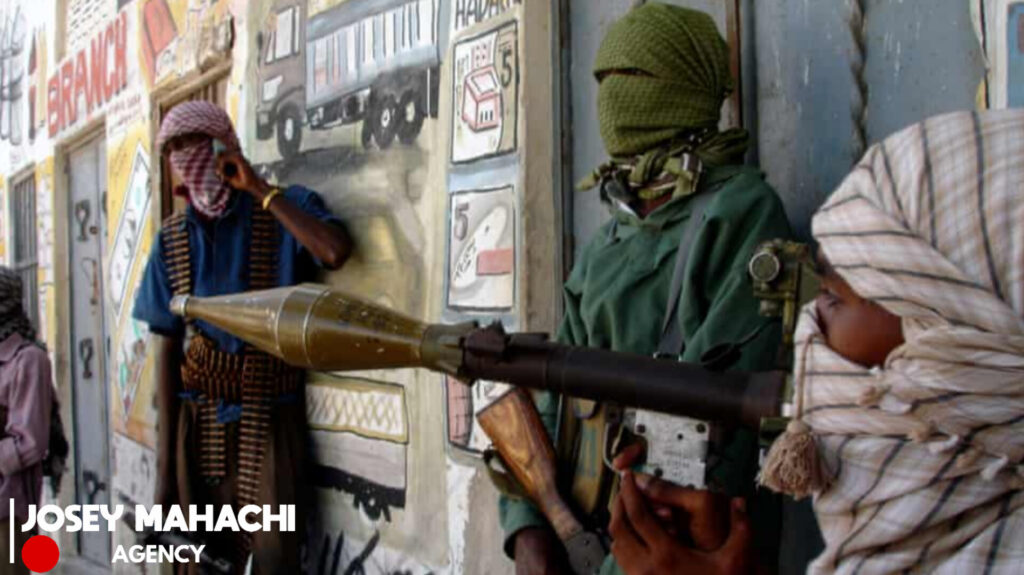By : Lloyd Mahachi
The United Nations has authorized a new African peacekeeping mission to continue its fight against Somalia’s al-Shabaab, the insurgent group affiliated with al-Qaida. The UN Security Council adopted a resolution allowing the deployment of up to 12,626 personnel to support the Somali government’s nearly two decades-long fight against al-Shabaab.
The existing peacekeeping force, known as the African Union Transition Mission in Somalia (ATMIS), will be replaced by the leaner African Union Support and Stabilization Mission in Somalia (AUSSOM). The two peacekeeping forces were preceded by the African Union Mission in Somalia (AMISOM), which was the largest, longest-running, and deadliest such mission in history.
Al-Shabaab, a jihadist organization with roots in Ethiopia’s 2006 invasion of Somalia, carries out regular deadly attacks across the country and in neighboring Kenya. In August, almost 40 people were killed and more than 200 were wounded when it attacked a beach in the Somali capital, Mogadishu.
The new mission has raised questions about the role of Ethiopian troops, who have been a major contributor to the previous peacekeeping forces. Somalia and Ethiopia have been embroiled in a year-long dispute over a sea access deal that landlocked Ethiopia reached with the separatist northern Somaliland region.
The agreement between Somaliland and Ethiopia has been strongly opposed by Somali officials, who have called it an attempt to “annex” a portion of their territory. The deal would reportedly grant Ethiopia a portion of Somaliland’s coast for potential naval use.
The Somali government has hinted that it might remove Ethiopian troops from the peacekeeping mission and replace them with troops from other countries, including Egypt. The Turkish president, Recep Tayyip Erdogan, brokered an agreement between the feuding neighbors last month, but it is unclear if Ethiopian troops will be allowed to remain in the mission.
The Somali government has carried out a “comprehensive review of its security arrangements” and has obtained commitments from other countries willing to commit troops to Somalia. The Ethiopian delegate to the UN Security Council meeting said his country was “ready to continue its role in the post-ATMIS mission.”
However, the Somali government is using the dispute as a “bargaining chip or negotiating tool,” according to an expert on Somalia. The Ankara declaration, brokered by Erdogan, is seen as a commitment to continue discussions, rather than a normalized agreement between the two countries.
The Somali government has claimed that Ethiopian troops attacked members of its armed forces in the southern Jubaland state, causing casualties and injuries. Ethiopia denied the allegation, attributing it to unnamed “third-party” actors.
After the resolution passed, a Somali MP called on the government to exclude Ethiopia from the peacekeeping force. “No nation can trust another where their sovereignty was threatened by them,” he posted on social media.
The situation remains uncertain, with many questions about the future of the peacekeeping mission and the role of Ethiopian troops. The international community is watching closely, as the situation in Somalia continues to unfold.
The UN Security Council’s resolution is seen as a crucial step in supporting Somalia’s fight against al-Shabaab. The resolution authorizes AUSSOM to support Somalia in its fight against al-Shabaab, strengthen Somalia’s stabilization efforts, and enable the delivery of humanitarian assistance.
The French representative at the council hailed the adoption of the resolution as an important step forward and a “new stage in the support for Somalia’s efforts to combat the al-Shabaab group.” The UK’s deputy permanent representative to the UN also welcomed the resolution, saying it “robustly reinforces” support for Somalia in its fight against al-Shabaab.
As the situation in Somalia continues to evolve, the international community remains committed to supporting the country in its fight against terrorism and instability. The new peacekeeping mission is seen as a crucial step in this effort, and the role of Ethiopian troops remains a key question in the ongoing dispute between Somalia and Ethiopia.
Editor : Josephine Mahachi

